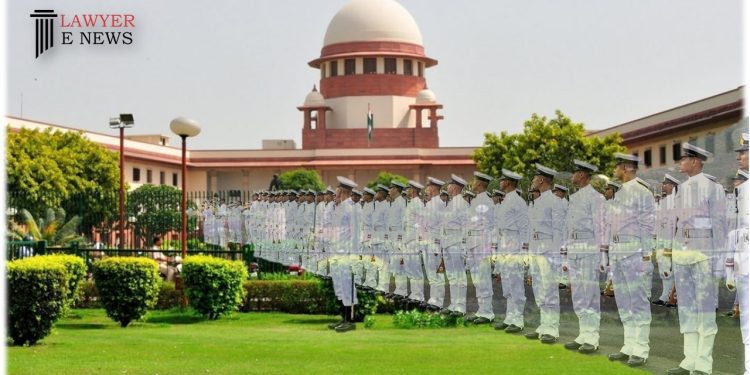Equal Pay for Equal Work: Supreme Court Clarifies Role of Judiciary in Determining Pay Scales

Supreme Court held in the recent Judgement (UIO Vs INDIAN NAVY CIVILIAN DESIGN OFFICERS ASSOCIATION AND ANR. D.D 22 Feb 2023) that the doctrine of “equal pay for equal work” can be enforced in a court of law, but it must be for equal work of equal value. The equation of posts and determination of pay scales is the primary function of the Executive and not of the Judiciary. The Courts should not enter upon the task of job evaluation which is generally left to expert bodies like Pay Commissions.
Facts
Before the Fifth Central Pay Commission, pay scales of all the disciplines and all grades were the same. After the recommendations of the Fifth Pay Commission, the pay scale of Rs.7500-12000 was fixed for the CTOs, whereas the pay scale of Rs.7450-11500 was fixed for the JDOs. The respondent-Association made a representation to the appellant for the grant of revised pay scale of Rs. 7500-12000 to the JDOs, but it was rejected by the Ministry of Finance.
The respondent-Association had filed an O.A. before the Tribunal, which disposed of the case with direction to the appellant to consider the parity of pay scale of JDOs along with CTOs by evaluating their duties and responsibilities and to pass a detailed speaking order. The Ministry of Finance again rejected the representation of the respondent-Association. The Tribunal set aside the order passed by the appellant and directed the appellant to grant to the JDOs, the pay scale of Rs. 7500-12000 at par with Group ‘B’ gazetted posts of CTOs (Design) from the same date as it was given to the Group ‘B’ gazetted posts with all consequential benefits. The appellant filed a writ petition, which was dismissed by the High Court.
Observed and Held
Supreme Court observed that High Courts have the power of judicial review in the matter of classification of posts and pay scale determination, but it is a complex matter best left to an expert body unless a grave error has been made, which requires court intervention to undo the injustice.
The Supreme court also observed that the powers of judicial review in matters involving financial implications are very limited. The wisdom and advisability of the Courts in matters concerning finance are not amenable to judicial review unless a gross case of arbitrariness or unfairness is established.
The Supreme Court further observed that the doctrine of “equal pay for equal work” can be enforced in a court of law, but it must be for equal work of equal value. The equation of posts and determination of pay scales is the primary function of the Executive and not of the Judiciary. The Courts should not enter upon the task of job evaluation which is generally left to expert bodies like Pay Commissions.
Supreme Court held that the Recruitment Rules governing the JDOs and CTOs are different, and there was no error in the fixation of the pay scales for the two posts. The Tribunal and the High Court had committed gross error in interfering with the pay scales recommended by the Fifth Central Pay Commission and accepted by the appellant for the posts of JDOs and CTOs, and in upgrading the pay scale of JDOs making it equivalent to the pay scale of CTOs.
The impugned orders passed by the High Court and the Tribunal quashed and set aside, and the appeal allowed.
UIO Vs INDIAN NAVY CIVILIAN DESIGN OFFICERS ASSOCIATION AND ANR.




